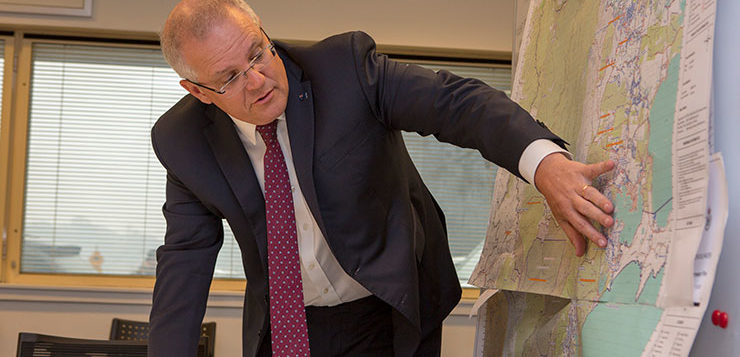Scott Morrison’s belief that Australia doesn’t have a ‘slave past’ is as offensive as it is ridiculous. But how our Prime Minister came to believe that speaks volumes about the desperately fragile character of the nation he leads. Chris Graham explains.
Almost two decades ago, the Australian Government released an advertising campaign in the lead up to the 100th anniversary of Australia’s federation.
It was, as good advertising campaigns sometimes are, provocative and thought-provoking, and it asked some hard questions. Like this: ‘What sort of a nation would forget the name of its first Prime Minister?’
The campaign caught a lot of Australians out. Most, me included, didn’t know (it was Edmund Barton, by the way).
Fast forward two decades to the 250th anniversary of the arrival of Captain Cook, and we might now reasonably ask, ‘What sort of a nation would elect a Prime Minister who forgot his country has a long history of slavery?’
The answer to both questions is the same, but I’ll come back to that shortly, because in case you hadn’t heard, Prime Minister Scott Morrison was out on Sydney radio recently defending the countless monuments and statues that litter our country in honour of people who have disgraced it.
“Australia when it was founded as a settlement, as New South Wales, was on the basis that there be no slavery,” Morrison remarked. “And while slave ships continued to travel around the world, when Australia was established, yes sure, it was a pretty brutal settlement… but there was no slavery in Australia.”
Which is, of course, both true and complete horseshit, all at once.
When the British arrived, the First Australians weren’t in the habit of taking slaves. That was a largely European preserve. So no, the colony of New South Wales wasn’t founded on slavery. But it sure as shit was built on it.
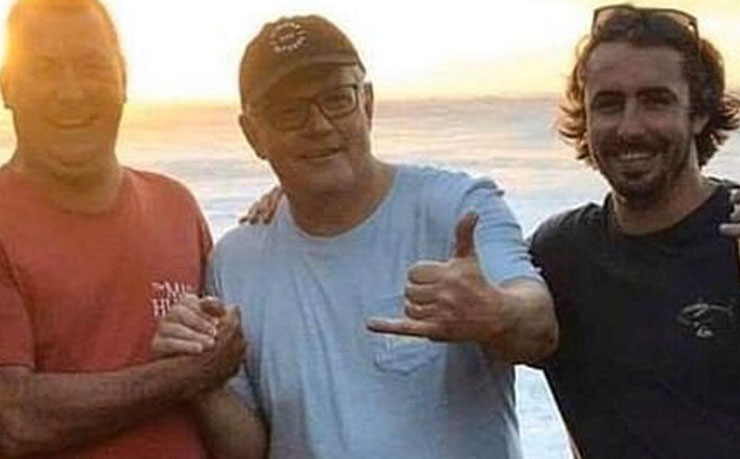
I’m don’t need to delve deeply into Australia’s slave past here – it’s been well-documented over many decades, although if you’re new to the concept, The Conversation published an excellent summation of it here yesterday, and there’s any number of articles written about it by Amy McQuire here. But it is worth exploring the chest-beating jingoism of politicians who seek to riff on it.
Speaking of Scott Morrison, he may have been engaging in the most time-honoured tradition of the Liberal Party of Australia – historical revisionism. But potentially even more shocking, Morrison may not have known about Australia’s slave past… either is still an appalling look for a Prime Minister, and whatever the truth, it’s not like Morrison hasn’t had plenty of opportunity to learn.
Quite apart from the innumerable articles and books written about the issue over many years, in 2006, less than 12 months before Morrison was elected to the seat of Cook (named after a man whose history Morrison apparently does have a deep enthusiasm for) Federal Parliament’s Standing Committee on Legal and Constitutional Affairs issued a rare tri-partisan report which detailed Australia’s long history of wage theft from Aboriginal and Torres Strait Islander people. And in case you missed it, ‘wage theft’ is Australian code for slavery.
The inquiry was driven by Andrew Bartlett from the Democrats, chaired by Liberal Senator Marise Payne (now Australia’s foreign minister) and included Labor and Greens senators. The resulting report – agreed to by all parties – references slavery multiple times, including this quote from Dr Ros Kidd, Australia’s foremost researcher on this issue:
“In the absence of mandatory employment provisions, a 1904 Royal Commission into Aboriginal administration in Western Australia found Aboriginal groups were entirely at the mercy of station management: cruelty in the ‘unsettled districts’ was intolerable and police treatment of Aboriginal people ‘brutal and outrageous’. Although most workers were not employed on contracts it was common practice to set the police to recapture absconders, including young child servants. Recommendations for a minimum five shilling monthly wage were successfully opposed by pastoralists, leading one parliamentarian to describe the current system as ‘another name for slavery’.”
In fact, forcing people into servitude and then refusing to pay them is the literal definition of slavery, but then Australia has a long history of assigning slippery names to things we shouldn’t discuss in ‘civilised’ company. Like our various ‘Aboriginal Protection Acts’, which South Africa used as the basis for its Apartheid laws.
The point being, Australia’s slave history is undeniable. The major difference between what we did and what was done in the United States is that Americans had to buy their slaves, whereas in Australia, we often just took them. Slave labour built the cattle industry in the Northern Territory and Western Australia, and you can probably guess how much value was placed on the life of a ‘free asset’. Easy come, easy go.
One other major difference is that the US formally abolished slavery in 1865, which is around the time Australia started practising it, before finally removing the last vestiges of it in 1986, although the actual legal resolution of the ‘Palm Island Wages Case’ took until 1996.
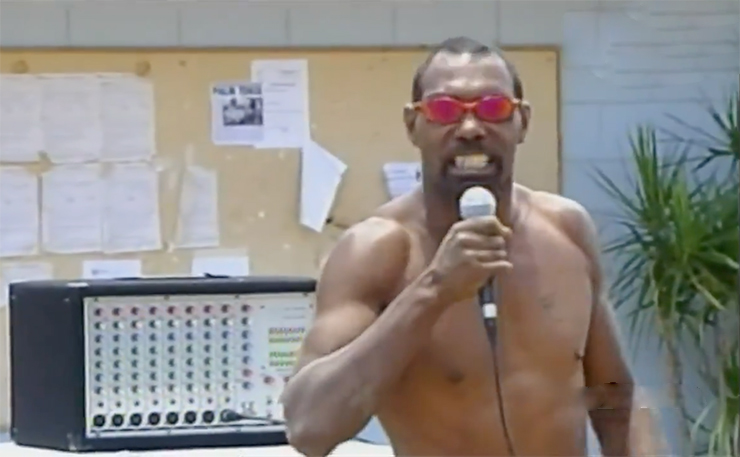
Born in 1968, Scott Morrison was an adult by 1986, and by 1996 he was active in politics. Within four years he would be appointed the State Director of the NSW Liberal Party. So it’s hard, to believe he had no idea at all about Australian slavery. So maybe, in his defence, Morrison was just confused about what, precisely, constituted slavery? After all, paying people for their labour in food and rations is sort of almost not slavery? (Answer: it’s slavery).
Helpfully, Australian Parliament has defined the term with the passing of the Modern Slavery Bill:
“Modern slavery practices include trafficking in persons, slavery, slavery-like practices (including forced labour and forced marriage) and the worst forms of child labour (including using children for prostitution or in hazardous work).”
Notably, that bill was passed into law in December 2018, five months after Morrison became Prime Minister. So if he didn’t know what slavery looked like in the 1990s, he definitely should today.
And therein lies Morrison’s Achilles heel, and the reason why, once again, Scotty from Marketing looks like a prize dill after months of pretty smooth sailing (through admittedly very rough waters).
If you’re going to be the sort of Prime Minister who seeks to cast yourself as the patriotic everyman – the sort of leader who would commit, say, $50 million of taxpayers’ money to celebrate the 250th anniversary of the beginnings of the destruction of a people – then you’d better make an effort to understand all the parts of that history.
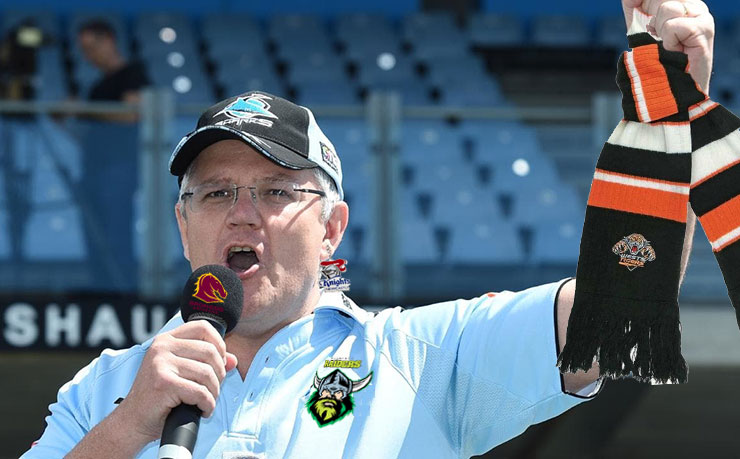
But Morrison isn’t that sort of Prime Minister, because he sees everything through the prism of ‘marketing opportunities’, and wholesale land theft and slaughter is a tough sell to an anxious nation, even for the former head of Tourism Australia. Instead, Morrison does what so many Australians have done for so long on so many issues related to the First Australians: he rebrands it.
The problem with history is that no matter how hard you try to ignore or reshape it, it doesn’t change. Obviously, this approach makes Morrison spectacularly shallow, or to borrow a phrase Morrison himself might enjoy, it makes him ‘all sizzle, no sausage’. But it also does help us answer the questions at the start of this article: What sort of a nation would forget the name of its first prime minister, and what sort of a nation would elect a Prime Minister who ‘forgot’ his country has a long history of slavery?
A nation whose determination to be selective in its memory is matched only by its unwillingness to confront the truths of its past.
An ignorant nation. Indeed, a wilfully ignorant nation, because in today’s world, you have to try really, really hard to be that uninformed about things so widely known.
The reason Morrison didn’t know about our slave past is the same reason so many Australians this past fortnight have been scratching their heads about the Black Lives Matter movement, and wondering why it’s even a ‘thing’ in this country.
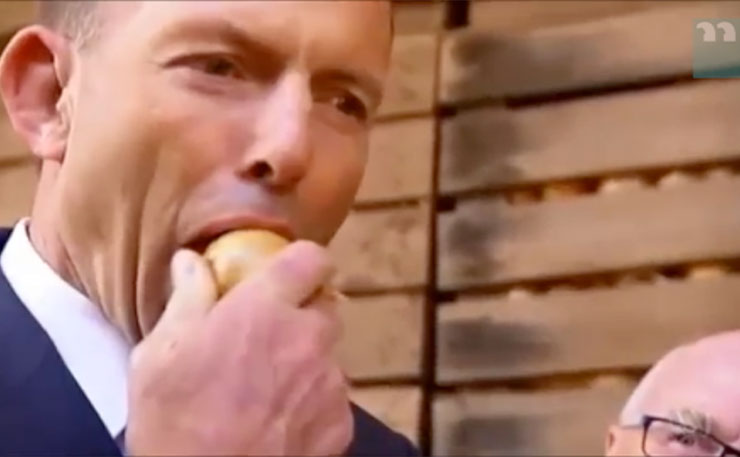
It’s the same reason Tony Abbott – a former Prime Minister who once described this continent as ‘nothing but bush’ prior to the arrival of the British – was this week awarded a Companion of the Order of Australia, in part for his “services to Australia’s Indigenous community”.
And it’s the same reason that the 2006 parliamentary report I mentioned above, which was un-ironically named ‘Unfinished Business’, remains largely un-enacted, and is gathering dust on a parliamentary library shelf somewhere with zero effort at a federal level to redress the massive past theft of Indigenous wages.
Scott Morrison is by no means the first Prime Minister to know so little about the true history of the nation he professes to love so deeply, and he certainly won’t be the last.
And that’s the biggest problem with history: if you don’t learn from it, you’re condemned to repeat it.
Donate To New Matilda
New Matilda is a small, independent media outlet. We survive through reader contributions, and never losing a lawsuit. If you got something from this article, giving something back helps us to continue speaking truth to power. Every little bit counts.

